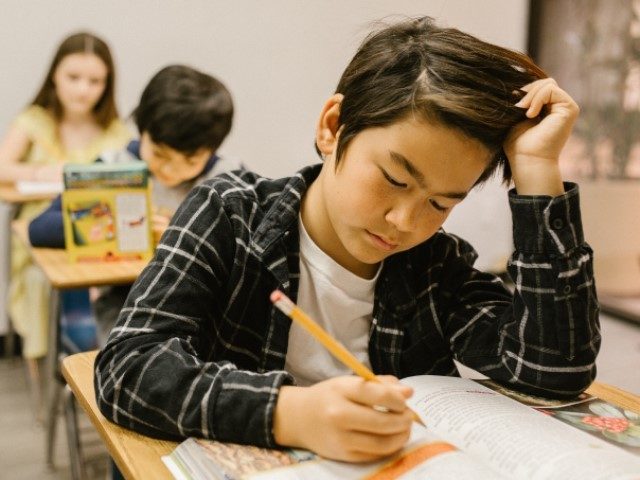Children worldwide have suffered “a nearly insurmountable” loss of learning due to prolonged school closures during the ongoing Chinese coronavirus pandemic, the United Nations Children’s Fund (UNICEF) warned on Monday.
“In March, we will mark two years of COVID-19 [Chinese coronavirus]-related disruptions to global education. Quite simply, we are looking at a nearly insurmountable scale of loss to children’s schooling,” UNICEF Chief of Education Robert Jenkins said on January 23.
“While the disruptions to learning must end, just reopening schools is not enough,” he stressed.
“Students need intensive support to recover lost education. Schools must also go beyond places of learning to rebuild children’s mental and physical health, social development and nutrition,” Jenkins advised.
Children across the globe have been denied access to in-person learning over the past two years to varying degrees through school shutdowns ordered by their respective governments in an effort to prevent Chinese coronavirus transmission. The negative impact of such limits on face-to-face learning transcends socioeconomic status, though UNICEF acknowledged on Monday that children from the poorest countries suffer greater losses than their wealthier counterparts.
“In low- and middle-income countries, learning losses to school closures have left up to 70 percent of 10-year-olds unable to read or understand a simple text, up from 53 percent pre-pandemic,” the agency revealed.
“In the US, learning losses have been observed in many states including Texas, California, Colorado, Tennessee, North Carolina, Ohio, Virginia and Maryland,” the U.N. agency continued. “In Texas, for example, two-thirds of children in grade 3 tested below their grade level in math in 2021, compared to half of children in 2019.”
Across several states in Brazil, considered an upper-middle-income country by the World Bank, about “3 in 4 children in grade 2 are off-track in reading, up from 1 in 2 children pre-pandemic,” UNICEF revealed.
“Across Brazil, 1 in 10 students aged 10-15 reported they are not planning to return to school once their schools reopen.”
Students in South Africa “are between 75 percent and a full school year behind where they should be. Some 400,000 to 500,000 students reportedly dropped out of school altogether between March 2020 and July 2021,” according to UNICEF.
The World Bank classifies South Africa as an upper-middle-income nation, though a November 19, 2021, report by Bloomberg suggested South Africa’s “political and economic decline is accelerating and the country risks becoming a lower-middle-income nation by 2028.”
Uganda, which has one of the world’s youngest populations, reopened its schools on January 10 after a nearly two-year-long shutdown of its public learning institutions due to the pandemic. Saudi Arabia followed suit on January 23, allowing children aged 5 to 11 years to resume in-person learning for the first time since March 9, 2020. Uganda is a low-income country, while the economy of Saudi Arabia is considered high-income.

COMMENTS
Please let us know if you're having issues with commenting.